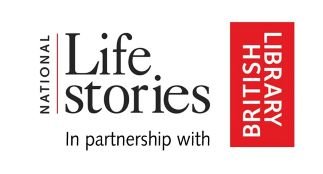
Gilli Salvat
Gilli Salvat, born in Calcutta (India), came to the UK with her family in 1948 and was a youth worker in London
Part of the external The British Library oral history collection
About
Gilli Salvat, with her family, arrived in the UK in 1948, shortly after partition, in search of employment. Gilli worked in north London as a youth worker throughout the 1980s, especially working with vulnerable young women and girls. In the mid-1980s, she joined the newly established Haringey Council Lesbian and Gay Unit. In the mid-1990s she went on to write ‘Once Upon a Time in Docklands’, a booklet about the stereotypes which helped racism to grow in the UK.
Gilli Salvat was interviewed in 1986 by Allegra Damji for the 'Hall Carpenter Oral History Project', a pioneering oral history project which captured over 100 interviews with gay and lesbian people in Britain in the 1980s and 1990s. The full interviews are archived at the British Library under collection reference number C456. Gilli Salvat's interview is British Library reference C456/40, © British Library.
Listen to Gilli talking about arriving in the UK from India shortly after partition in 1948.
Interview conducted by Allegra Damji, 1986.
GS: I remember standing on the rail of the boat as it pulled away from India and my parents were both crying and crying, like, and India was getting smaller and smaller, and all the lights were getting dimmer and dimmer. And I didn't really understand why they were crying, but they were crying because they knew that they'd never see her again. And we docked in Tilbury. And it was a really grey day, really drizzly. And I remember actually docking, but I don't remember the journey to London. And then we stayed in an immigrant camp which was in the basement of this church near Selfridges. And they had all the men and boys in one part, and all the women and girls all on these iron cots. It was just, like, really like Dickens. And they had all these English people, like, they were like warders that used to tell us off and everything. Because nobody wanted children, right? Nobody wanted coloureds, nobody wanted children and nobody wanted pets, right? So you couldn't get anywhere. And my dad just walked all over London, yeah? The only shop that we knew about was Harrods, because that's what had been in all the magazines and everything. And they'd brought some of their savings. And he took us to Harrods, right, and bought me and my sister overcoats and everything, because we didn't have any warm clothing. Yeah. And like people were so unused to seeing, you know, Black people or whatever in the street. We used to be walking along Oxford Street and people used to stop, right, and just stare at us. Stop in their tracks, yeah, and point at us and everything. We were just like, really, you know, unusual. You can't imagine it now. And when I went to school, all the kids equally used to take the piss out of me, right, because of how I talked. And they thought that I was an Indian from the States, yeah. Like a Red Indian, right? And I think in about three weeks, I changed my accent, and I started learning to survive.
For all permissions requests for audio and video clips and their transcriptions from external collections, please contact the original project or organization.
Entry credit
Laura Owen
